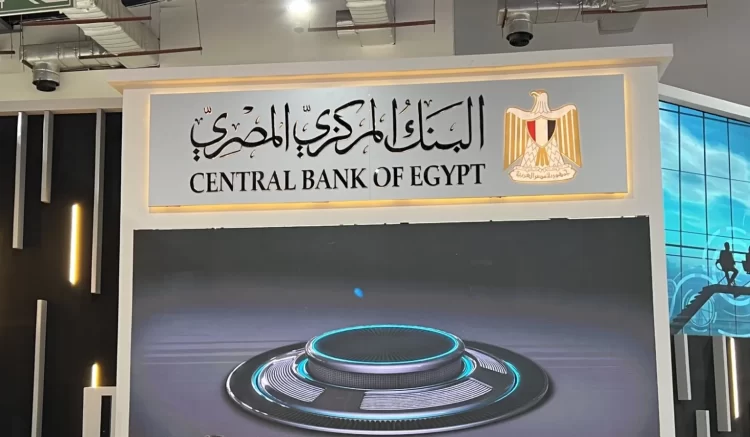The rapid development in information and communication technology worldwide has led to the emergence of many innovative financial and banking solutions that significantly increase the efficiency of financial services and expand their reach, thereby having a positive impact on the national economy and society at large.
Innovative fintech has become one of the most promising industries globally, thanks to its ability to leverage modern technological mechanisms and techniques to expand the scope of financial and banking services and products.

The value of the fintech market in the Middle East and North Africa (MENA) is estimated at worth approximately $1.36 billion in 2023, and is expected to reach $1.51 billion in 2024, and $2.40 billion by 2029, according to the “Mordor Intelligence” platform.
According to a report by venture capital data company “MAGNITT,” the fintech sector is one of the most funded and traded industries in the MENA region, accounting for 24% of total venture capital investment in the region in the first half of 2024.
Continuing this development, it is expected that the sector will experience significant global growth in 2025, driven by various developments in the investment and regulatory environment. Projections indicate that the sector will achieve a cumulative growth of 37% annually until 2029.
The fintech sector in Egypt has also seen steady growth in recent years, as the country is rapidly emerging as a key player in the fintech field, reshaping its financial landscape. This is seen as a catalyst for economic transformation and the establishment of financial democracy, supported by strong actions from various state agencies, including the CBE, the Ministry of Communications and Information Technology, and the Financial Regulatory Authority, which have laid the foundations for this vital sector, providing a starting point to support the companies operating in the field.
Supportive Legislation.. A Foundation for Launching
These foundations are mainly reflected in the laws and regulations related to the industry, most notably the 2020 Central Bank and Banking Law, which established the regulatory framework for digital banking services and financial services, and enabled the Central Bank to license and oversee fintech companies. Additionally, the 2004 Electronic Signature Law ensures the legal validity of electronic records and signatures, thus facilitating online financial services and transactions.
The third law pertains to the regulation of non-cash payment methods issued in 2019, which ensures the provision of a legal and regulatory framework to promote and encourage the use of non-cash payment methods such as credit and debit cards, electronic bank transfers, mobile payments, and fintech. Additionally, there is the Data Protection Law, which is a key element of fintech services, as data security and privacy are of utmost importance.

Government initiatives have also played a significant role in enhancing the business environment for startups, positioning Egypt among the best environments supporting this sector. These initiatives include the launch of Egypt’s first fintech accelerator program in 2016, the establishment of NilePreneurs to support entrepreneurs in 2019, the launch of the Nclude Fund for fintech investment in 2022, and the creation of a digital academy to build skills in fintech in 2023, as well as the launch of the “FinTech Minds” challenge by the Arab African International Bank last year.
Recently, the ICT company “Intlaq,” in collaboration with the Dutch Development Agency (RVO) and the Dutch Embassy in Egypt, announced the launch of a comprehensive data-driven report that presents the evolving fintech landscape in Egypt. The report provides a strategic view of the sector, analyzing its growth potential, key market trends, challenges, and opportunities for local and international investors.
Steady Growth
It is expected that the fintech sector in Egypt will grow at an annual rate of 12%, with the number of fintech startups in the country reaching 65% of all startups. Egypt ranks third in the region and tenth in emerging markets, according to a report prepared by “Intilaq” in collaboration with the Dutch Development Agency (RVO) and the Dutch Embassy in Egypt.
The report also indicated that the total number of fintech startups in Egypt is around 139, with 38 companies integrating fintech into their solutions. The report also highlighted the challenges facing the fintech sector, such as regulatory challenges, including lengthy licensing processes, high compliance costs, unclear regulations, and frequent changes in regulations.
The report also addressed funding challenges, such as limited availability of funding, investor risk aversion, and a lack of international investors, as well as labor market challenges, such as difficulty in finding specialized talents, high employee turnover, and low fintech knowledge.
Furthermore, the “Intlaq” report highlighted the future skills needed in the fintech sector, which include programming languages such as Python and Java, data science and analytics, artificial intelligence and machine learning, cybersecurity, and blockchain technology.
Egyptian startups have recently played an essential role by forming strategic partnerships with international companies to support and empower the sector in Egypt. They are expanding their market position by offering innovative digital services or expanding regionally and globally.
As a result, there is a need to continue expanding startup funding programs, especially in underserved areas, launching government incentives to retain local talent, and strengthening digital infrastructure, particularly in Upper Egypt and Sinai. Moreover, improving cooperation between banks and startups is essential to facilitate the adoption of innovative financial solutions.
Banks and E-commerce Companies Readiness
When discussing the sectors most prepared for development in Egypt through fintech, some sectors stand out due to their need for rapid innovation and development in digital services. These include the banking sector, which has fully embraced fintech services in its daily operations, especially with the full digital transformation underway in Egypt’s banking sector and the strong shift toward mobile phones for most banking transactions.

The e-commerce and retail sectors also rank high as sectors most ready for fintech development, relying on electronic payment solutions, smart installment plans, the growing use of digital wallets, integration with rapid payment systems, and AI-driven consumer behavior analysis on shopping platforms.
The transport and logistics sector is another key player, as it increasingly adopts non-cash payment methods in ride-sharing apps and public transportation, as well as the need for innovative solutions for managing shipments and tracking payments in cross-border trade. The healthcare and insurance sectors are also emerging, as they use data analytics to offer tailored insurance plans.
Strategic Policies for Regulatory Bodies
Regulatory bodies have played a pivotal role in laying the foundation for the fintech sector and creating an environment conducive to fintech companies. The Central Bank of Egypt, as a driving force for development and a supporter of the fintech industry, launched its comprehensive fintech and innovation strategy in March 2019, aiming to make Egypt a regional hub for the fintech industry.
As a result, the value of electronic transactions in Egypt is expected to reach 22 trillion pounds by the end of 2024, a 200% increase compared to 2021, which saw 7 trillion pounds in transactions, with a total of 6 billion transactions—500% more than the 1 billion transactions in 2021.
The number of payment cards in Egypt has also seen notable growth, exceeding 67 million cards by September 2024, compared to 52 million cards at the end of December 2021, reflecting a 30% increase.
Regarding the instant payment network, all banks in Egypt have connected to the system and the “Instapay” app, with over 11 million registered users and transactions exceeding 2.7 trillion pounds in 2024, marking a 215% increase compared to 855 billion pounds in 2023, and a growth of 4,700% compared to 2022.
Regulatory Framework
The Central Bank of Egypt continues to work on strengthening the digital payment infrastructure and creating the necessary rules to offer advanced payment services to citizens. These efforts are part of the broader push toward increasing financial inclusion, which reached 74.8% by the end of 2024, compared to 70.7% in 2023. This reflects a growth rate of 204% from 2016 to 2024, despite a broader base of citizens eligible to open financial accounts, after the Central Bank’s instructions to lower the minimum age for opening bank accounts to 15 years from 16 years, aligning with changes to the national ID issuance age.
Experts Outlook
In this regard, the “Followict” platform surveyed several financial technology experts in Egypt, who confirmed that the sector will drive growth in Egypt in the coming period, supported by various government agencies and the attention the government is giving to the sector to achieve economic development.











